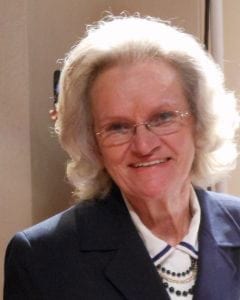It can be pretty difficult to live in a world where very few people understand your rare disease life.
Thankfully, there is a way to find others through the internet, but no matter how much encouragement others give you or how many smiley faces, praying hands or symbols of hearts you receive, there is nothing that can compare with actually meeting in person. Hugs are very therapeutic.
I’d like to encourage everyone in the rare disease community to find a way to meet with others. Conferences don’t occur very often, but when they do, they provide participants a way of connecting that alleviates some of the loneliness. Many rare disease organizations provide scholarships for families who would not be able to attend otherwise. No one who needs such help should ever hesitate to ask for it. I’ve never met anyone who didn’t benefit from such an encounter.
In 1973, after years of searching, our ten-year-old daughter, Kelley, was finally diagnosed with an ultra-rare disease. At that time, we couldn’t imagine the day would come when we would be able to connect with others for a common purpose. Thus, we traveled a lonely road for many years before finally finding and joining a group with similar conditions in 1990. Attending our first conference in 1996, we discovered the healing power of hugs from others with rare diseases, even though no one there had the same condition Kelley had. With the hope that someday we would meet up with others with her condition, we attended more conferences whenever we could.
Eventually, through that group we were able to connect with a few families who shared Kelley’s condition, and then join another organization with similar conditions. By 2005, when Kelley was 42 years old, we were able to attend a conference where, for the first time, the doctors and researchers actually talked about the fact that they were working on Kelley’s disease.
It was wonderful to meet with others with the same and similar conditions, learning how much we had in common, even though there were variations in the ways our families were affected. We saw how much could be achieved when the families came together for a common cause of advancing research on their own and other conditions. Kelley realized that they wouldn’t find answers in time for her to benefit, but she was happy to be able to give whatever information they needed in order to help them advance the research.
She died in 2009, but my husband and I stayed involved because we had become so close to the other families.
As time went by, we were able to attend more conferences and find more families, so that at a 2015 Conference there were 175 attendees from 9 countries, 30 of whom were professionals. It was gratifying to witness so much progress and hope for all families dealing with rare diseases.
What a long way we have come, witnessing the miracles that can happen when all of us involved in the Rare Disease Community work together, no matter the name of the condition, to find ways to raise awareness of the needs of those who must cope with complicated conditions.
We must maintain a strong partnership between the medical community and all rare disease groups, encouraging each other, and overlooking any differences so that everyone may benefit. As one of the conference doctors said, “We’re all on the same road.”
Do try to attend a rare disease conference, whenever you can. Most caretakers are tired and fragile at times, but we’ve seen what can happen for the benefit of everyone when we remember that really do need each other.







